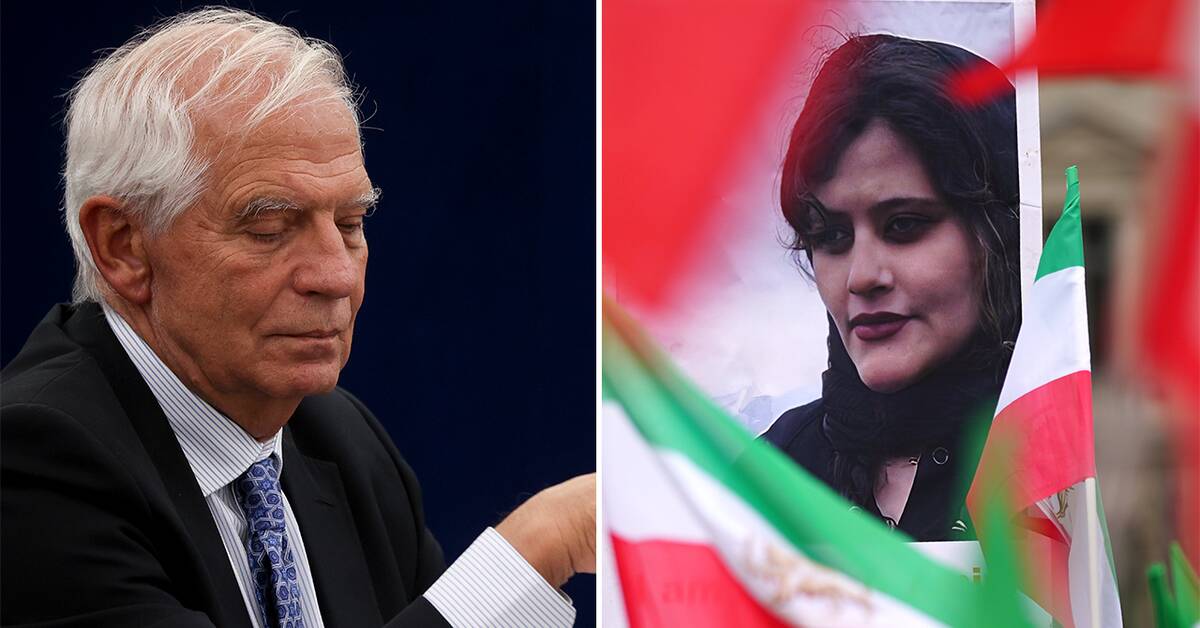The protests in Iran following the death of 22-year-old Mahsa Amini have been going on for almost three weeks.
In recent days, several videos have been shared on social media where the Iranian security police have been seen shooting at protesters, chasing students in garages and carrying away protesters with black cloth bags over their heads.
Now politicians around the world are demanding responsibility from the regime and want to introduce new sanctions against the country.
The EU is expected to make a decision on October 17
On Monday, the President of the United States announced that new sanctions will be imposed on the Iranian authorities who are responsible for the recent violence against protesters in the country, according to AFP and Reuters.
Now several European countries, such as France, Denmark and Germany, are following in the country's footsteps.
The proposed sanctions are to be directed at those responsible in the country for the violent response to the protests.
Over 16 proposals from the majority of European countries have now been submitted to the EU.
The proposals are expected to be reviewed on October 17, when several foreign ministers will make a decision on the issue and review the implementation of the sanctions.
An anonymous source tells Spiegel Magazine that no resistance is expected in the matter.
S-toppers want to see a discussion about the sanctions
Even Swedish politicians are now joining the crowd who wish to see increased sanctions against the country.
In Tuesday's P1 Morning, Ardalan Shekarabi (S), outgoing social security minister, and former member of parliament Arman Teimouri (L) - both with roots in Iran - discuss how Sweden and the West should act after the regime's violent handling of the protests in the country.
- There are countries, the United States for example, that have imposed sanctions against the moral police in Iran.
The rest of the world hasn't really done that.
There must be more sanctions and specifically against people who ensure that this repression can continue, says Teimouri.
Ardalan, in turn, wants the government and the EU to take a position on sanctions, but also wants the issue of human rights to have a bigger place in the discussion.

